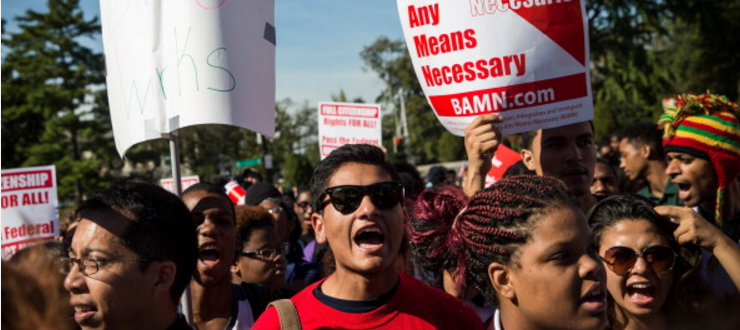
13 Jan Harvard Highlights a Study About Workplace Diversity – The Results Are Far from Politically Correct
For all the effort modern workplaces put into promoting diversity, some studies suggest they do more harm than good.
Despite companies hiring Vice Presidents of Diversity and developing mission statements promoting their Commitment to a More Diverse Workforce, these programs haven’t produced the desired effects.
In a Harvard Business Review op-ed published Monday, three researchers discussed their experiments with “the rhetoric of diversity.” They found pro-diversity messages failed to help women and minorities feel confident that they are being treated fairly while leading white men to believe they are less likely to get fair treatment.
Tessa Dover and Dr. Brenda Major of the University of California, Santa Barbara and Dr. Cheryl Kaiser of the University of Washington wrote that experiments promoting diversity during job interviews caused physical stress on white men:
“Compared to white men interviewing at the company that did not mention diversity, white men interviewing for the pro-diversity company expected more unfair treatment and discrimination against whites.
They also performed more poorly in the job interview, as judged by independent raters. And their cardiovascular responses during the interview revealed that they were more stressed.”
Pro-diversity messages, therefore, signaled to the men they may be undervalued and discriminated against.
In another set of experiments, pro-diversity rhetoric and initiatives also did little to convince minorities of the merits of their workplace. The authors wrote:
“Participants from ethnic minorities viewed a pro-diversity company as no more inclusive, no better to work for, and no less likely to discriminate against minorities than a company without a pro-diversity stance.”
The results of this study could have major implications for how companies address and promote diversity in the workplace, which is turning into a major business-within-the-business, particularly among tech companies.
Early last year, Apple committed more than $50 million to an organization wanting to increase the number of women and racial minorities, as well as sexual minorities, in the technology industry.
Twitter also made strides to improve diversity, but received major blowback in December for hiring a white man as the company’s new vice president of diversity.
Jeffrey Siminoff received a chilly reception on Twitter, although he made his name for diversity in tech by co-founding the Leadership Committee of Out Leadership. The lesbian, gay and transgender advocacy group promotes sexual minorities in business:
Despite Siminoff’s status with sexual minorities, racial diversity remains a major point of contention between the tech industry and diversity activists. In mid-2015, a New York Times/CBS News poll that found nearly six-in-ten Americans think race relations are generally bad, and four-out-of-ten think they are getting worse.
The Harvard Business Review column offers a few suggestions for managers who want to promote diversity while minimizing the negative side effects:
Realize the potential effects of pro-diversity messages on different groups of people;
Craft more effective, researched messages;
Know the limits of diversity initiatives for those they are intended to help.
But as the poll and the recent experiments remind us, balancing diversity with a company’s other goals remains a tricky business.


Sorry, the comment form is closed at this time.